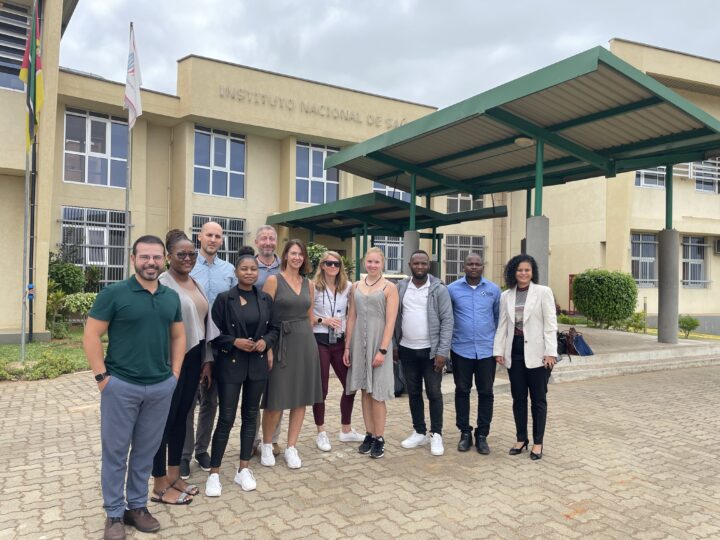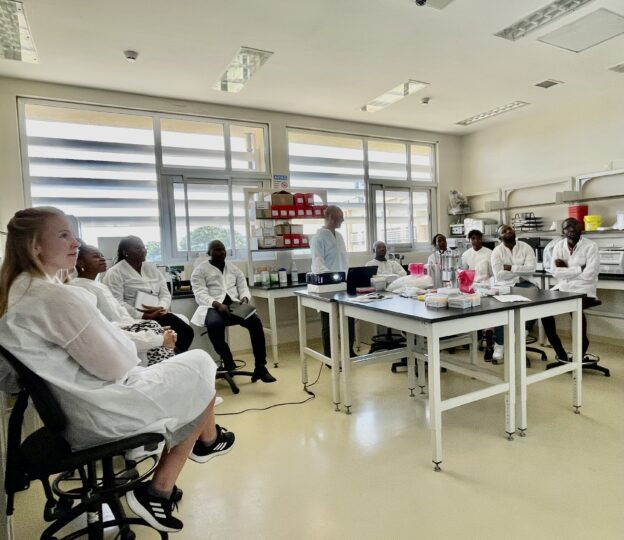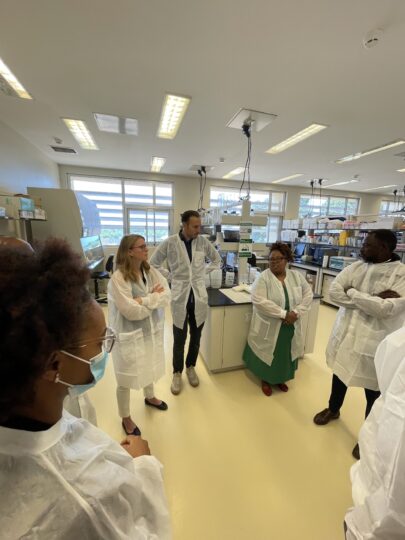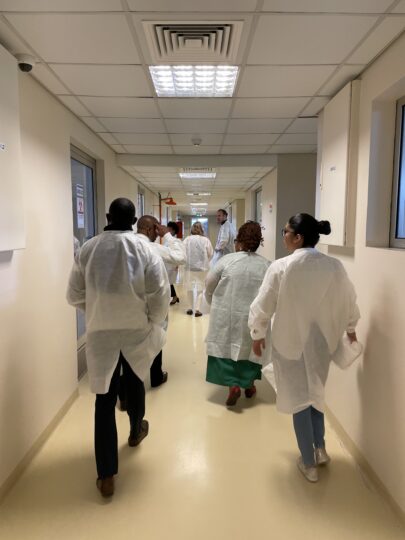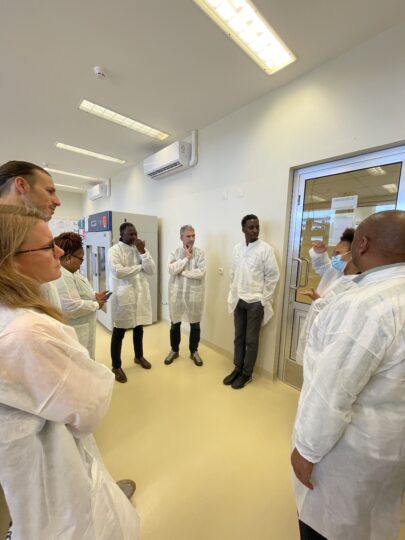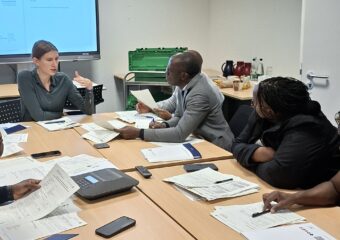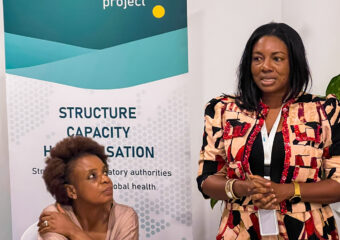Consortium Meeting and joint international training course in “Whole Genome Sequencing for surveillance and prediction of drug resistance in clinical M. tuberculosis strains” in Maputo, Mozambique
Revolutionising Public Health: Sub-Saharan SeqNET’s Consortium meeting and hands-on Whole Genome Sequencing (WGS) training at Maputo, Mozambique, sparked collaboration among local leaders, scientists, and public health actors, fostering South-South cooperation and shaping the future of Next Generation Sequencing (NGS) use.
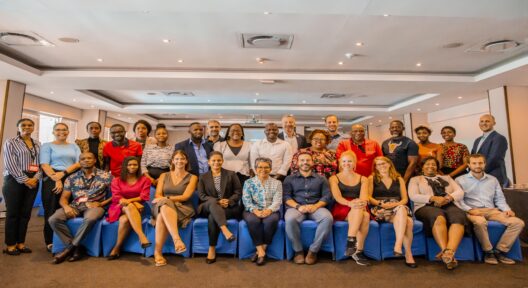
After a day of guided visit through the labs of the Instituto Nacional de Saúde (INS) the on 23 October, the inaugural consortium meeting of the Sub-Saharan SeqNET project convened on 24 October, 2023, at 10:00 AM Maputo time, in the main conference hall of Hotel Cardoso, Maputo, Mozambique. The gathering fostered collaboration among key stakeholders, including leaders of local Public Health Laboratories, principal investigators (PIs), local coordinators, microbiologists, and technicians, all of whom are integral members of the project network.
This meeting served as a platform for more than 30 participants from at least 6 different countries to come together, facilitated by the financial support of the GHPP. Throughout the day, attendees engaged in presentations, discussions, networking, and activities that allowed for a comprehensive understanding of the Sub-Saharan SeqNET project’s goals, objectives, timeline, milestones, and scientific developments in the field.
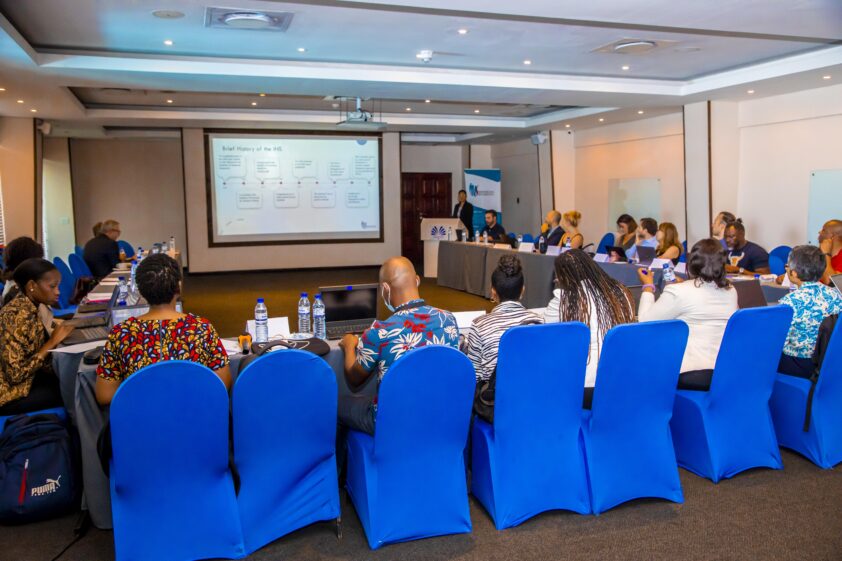
Scientific lectures featured collaborators from esteemed institutions such as the Research Center Borstel (Germany), Ospedale San Raffaele (Italy), Inselspital Bern (Switzerland), National Tuberculosis (TB) Reference Laboratory Eswatini (Eswatini), COVID-19 National Laboratory (Eswatini), Baylor College of Medicine Eswatini (Eswatini), Instituto Nacional de Saúde (Mozambique), and University of Namibia School of Medicine (Namibia).
After that, the day’s agenda also included presentations by the local PIs and coordinators of the Sub-Saharan SeqNET, focusing on TB statistics and TB diagnostics specific to their respective countries. These presentations highlighted the positive impact of NGS-based diagnostics on TB diagnosis, providing an overview of project progress, including details on sample collection, infrastructure development, and advancements in incorporating NGS into local diagnostic algorithms.
Importantly, this year’s consortium meeting facilitated strengthened collaborations between institutes. Notably, between 23 and 27 October 2023, lab technologist and PhD students from Namibia and Eswatini, together with the ones from Mozambique, also convened for the project’s first Whole Genome Sequencing (WGS) and bioinformatics training at the facilities of the INS in Maputo. During that week the trainees were offered with hands-on wet and dry lab training in all steps needed to do and analyses WGS of Mycobacterium tuberculosis complex strains.
These lateral South-South collaborations are actively promoting the exchange of experiences and the development of a strategic plan for the adoption of NGS into their Public Health Laboratories considering the reality of Sub-Saharan African laboratories and institutes.

